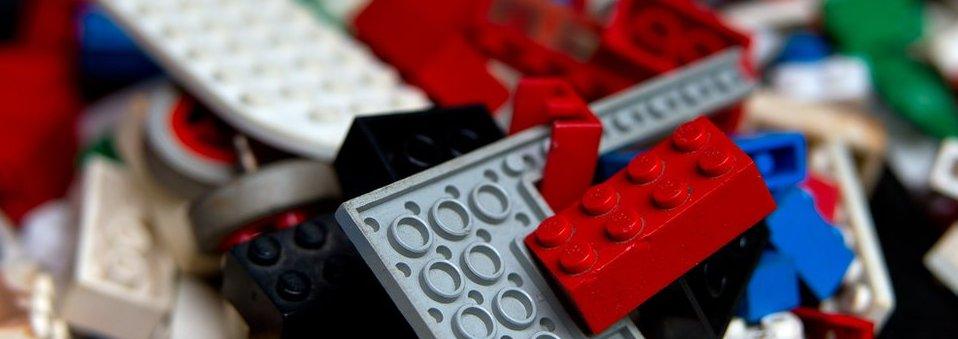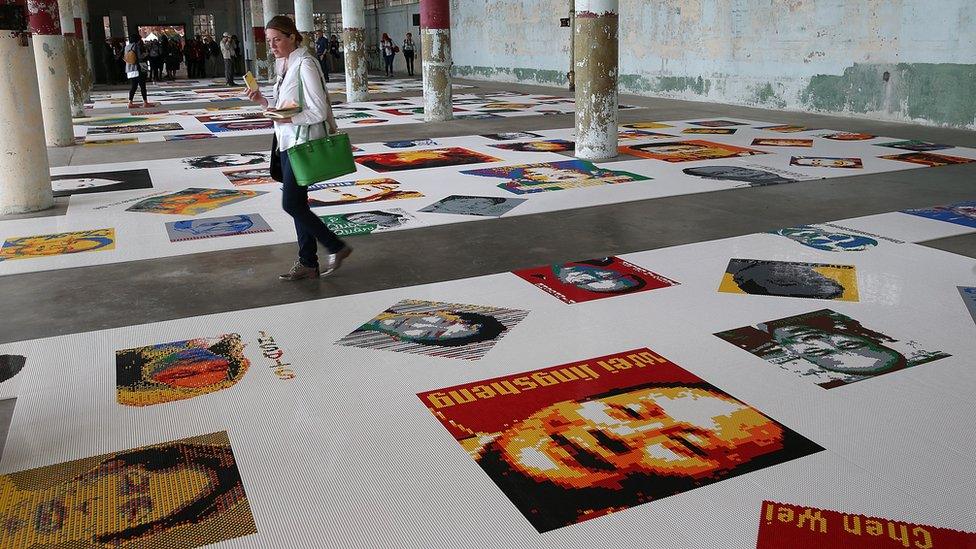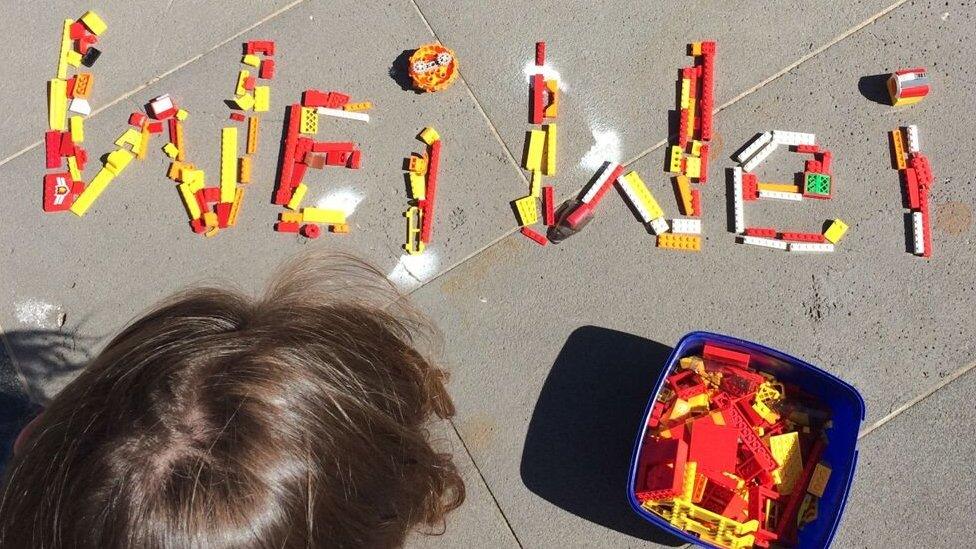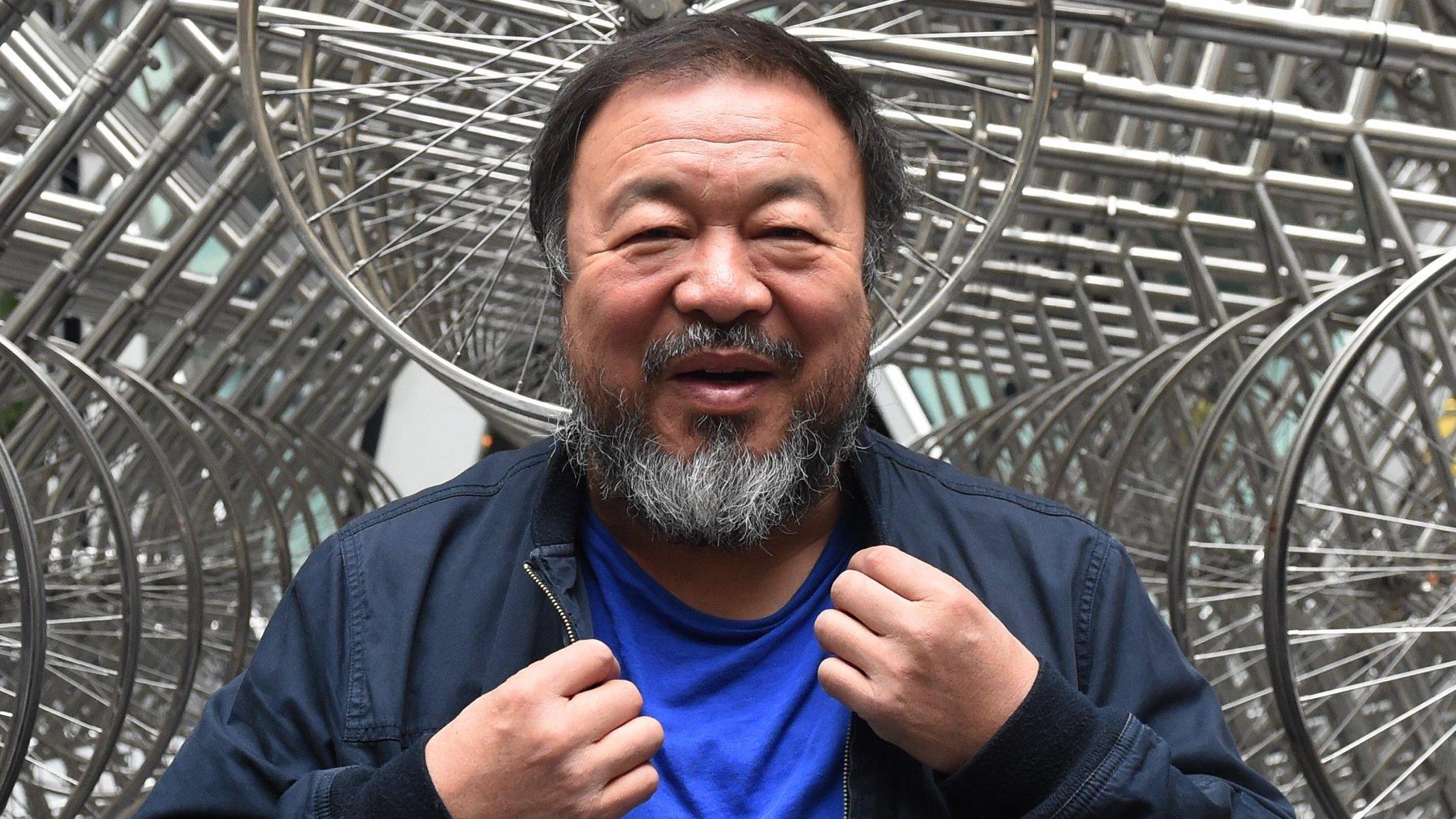Ai Weiwei: Lego decision is 'victory for free speech'
- Published
Chinese artist Ai Weiwei described the U-turn as "a victory for freedom of speech"
Lego's decision to stop asking bulk customers what they want to do with the bricks is a "victory for freedom of speech", Chinese artist Ai Weiwei has told the BBC.
Last October, Ai accused Lego of censorship when it refused to sell its bricks directly to him.
On Tuesday Lego said customers should instead make clear that the company does not endorse works shown in public.
Ai, a leading artist, is also known for criticism of the Chinese government.
He said Lego's U-turn would encourage people to use the product to express themselves.
"It is just a toy, but every toy reflects the company's understanding about what kind of future we are in and how we encourage our children to understand essential values," he said.


How Lego got political in China - Celia Hatton, BBC East Asia analyst
When Lego first refused to sell a bulk order of plastic bricks to Ai Weiwei in September, he's thought to have kept the news to himself. But a few weeks later, the announcement that a new Legoland theme park would open in Shanghai led the artist to reveal Lego's decision to stay away from projects that had a "political agenda".
It was a surprising decision by Lego. After all, Ai Weiwei had used Lego before. He created a series of portraits of political dissidents that appeared at an exhibition in Alcatraz prison in 2014.
Back in October, the artist tied Lego's financial interests in China with its decision to refuse his order. His accusation has some merit: KIRKBI, the private Danish company that owns the Lego brand also owns a significant amount of shares in Merlin Entertainment, the British company that operates Legolands around the world.
China is Lego's fastest growing market and the company wouldn't want to irritate Beijing. However, as Lego might attest, few would want to battle the feisty Ai Weiwei.

The artist added that Lego "should not worry too much" over possible fears that its use in his art could affect a proposed Lego theme park in Shanghai.
In a statement posted on its website on Tuesday,, external Lego said it used to ask customers ordering bulk purchases for the "thematic purpose" of their project, as it did not want to "actively support or endorse specific agendas".
"However, those guidelines could result in misunderstandings or be perceived as inconsistent, and the Lego Group has therefore adjusted the guidelines for sales of Lego bricks in very large quantities," it said.

Ai created Lego portraits of notable dissidents in 2014 at San Francisco's infamous Alcatraz prison
The artist appeared to react to Lego's decision on Wednesday by posting a picture on Instagram, external of a young boy sticking bricks onto his face, accompanied by a grinning emoji caption.
Lego's refusal to provide bricks for Ai's artwork on political dissidents prompted people around the world to donate bricks at "Lego collection points" set up in different cities.
The artist ended up making a new series of artworks based on the incident as a commentary on freedom of speech and political art.
- Published29 October 2015

- Published26 October 2015

- Published25 October 2015
